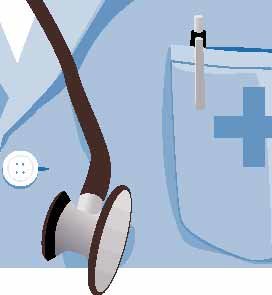
According to a recent book by Morris M. Kleiner, an economist at the University of Minnesota, as many as 3 out of 10 workers in the United States must now be licensed to do their jobs. No longer limited to doctors, lawyers and the like; fortune tellers, massage therapists, shampoo assistants, librarians, beekeepers, electrologists, movie projector operators’all must obtain a license to do their jobs.
Your first reaction may be that licensing means better quality service and better protected consumers, but that’s not necessarily so.
There is a difference between state licensing and private certification. Private certification by professional organizations (with standards generally higher than those required by the government) vouches for a service provider’s credentials.
The American Medical Association, for example, can certify that a particular doctor, by belonging to this organization, has met their standards. The AMA does not have the power to prevent a doctor from practicing, but it does have the power to deny its stamp of approval.
Why would any patient be irrational enough to see a doctor not approved by the AMA? Is state licensing required to make sure that ignorant or feebleminded people don’t harm themselves and that fraudulent quacks can’t exploit them? Are there only irrational and stupid reasons for doing something that an organization such as the AMA disapproves of? Well, maybe not. Sometimes people want to see doctors with less traditional approaches. Maybe, in a particular case, conventional medicine hasn’t worked. History has shown that less conventional approaches sometimes become the mainstream treatments of tomorrow. Shouldn’t patients be allowed to select for themselves what they see fit, so long as there is no outright fraud?
In a society with private certification, the patient has this choice; in a society with state licensing, the patient will not necessarily have this choice. This is because state licensing—with medicine or with anything else—doesn’t merely outlaw fraud and deception. It also outlaws the unconventional, simply because it’s unconventional. It outlaws, or at least curbs, innovation.
State licensing also outlaws competition. It allows doctors, for example, to band together and use the force of government to prevent patients from seeing health professionals who might offer something different. This drains away business, which is why professional organizations such as the AMA tend to support licensing rather than oppose it. They say it’s ‘good for the consumer,’ but, in reality, it’s good for business. State medical licensing boards, for example, prevent physician’s assistants and nurse practitioners from performing certain medical services for which they have been trained, and for which they are unquestionably qualified. Why? To prevent medical doctors from having competition in these areas. There’s another reason why medical care is so expensive!
Because few have dared to question the sacred cow of coercive state licensing, the same premise has now spread to an incredible array of other professions, from shampoo girls to tarot card readers to massage therapists. Has licensing simply gone too far? If doctors can band together and prevent competition in the name of ‘protecting the consumer,’ then why can’t movie projector operators?
Coercive state licensing exercises the force of government to prevent service providers from making a living, even if they are honest and open with the consumer. In short, licensing is less about protecting the consumer and more about preventing competition. Professionals and workers who are threatened by competition see an interest in bringing government into the equation.
Government licensing relies on the premise that service providers are fraudulent or incompetent as a rule, rather than the exception. It also assumes that consumers are ignorant and stupid as a rule, rather than the exception. Therefore, fees and often arbitrary standards are imposed on service providers under the guise of ‘protecting’ the consumer.
A private certifying organization, made up of professionals in that particular field (often upon whom the government relies in setting the standards anyway) can do the job equally well or better. Government licensing forcibly restricts you from obtaining goods and services from the individuals you choose.
In a free society, it’s valid to expect the government to prosecute fraud and outright deception, but it’s not valid for the government to restrain trade, which is exactly what most licensing laws do.
Source: ‘Do You Need a License to Earn a Living? You Might be Surprised at the Answer,’ by Alan B. Kreuger, The New York Times, 3/2/06, page C3
